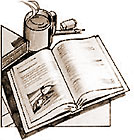
Atlas F1 Columnist
FORMULA ONE PADDOCK:
Behind the Scenes of a Grand Prix
Jean-Francois Galeron
Published by Chronosports
The mere existence of this book can be seen as a mark of how effective Bernie Ecclestone's packaging of Formula One has been... as if any proof was needed anyway. The less accessible and more exclusive you make something, the more people want it. And the more people want it, the more you can charge them for it. Access to the Formula One paddock is so highly restricted that at many circuits not only is it impossible for the average fan to get past the beeping gates, they can't even see through the fence to steal a glimpse of what they are missing out on.
Barricading the Formula One nerve centre off from the public parts of the circuit reinforces the sport's self-created sense of prestige, and also forges a sense of mystique for those who hang around outside hoping to get a glimpse of something, or someone, from the inner circle. As good as the food and wine may be, it's this sense of prestige, of being able to briefly touch something that is otherwise completely out of reach, that allows those nice chaps at the Paddock Club to charge as much as they do for entry. Without either an official invitation or official business, the Paddock Club is virtually the only hope a fan has of getting through the gates - and even that maintains a high level of exclusivity through its pricing.
The Formula One paddock is an odd place - a kind of self-contained little microcosm largely bereft of any influences from the 'outside' (eg non-Formula One world). The peripherals change from race to race, but otherwise it remains largely the same no matter where in the world it is. Apart from the absence of the gigantic, millimetre-perfect trucks and motorhomes at the fly-away races, that is. This continuity is no doubt a source of some comfort for those who call it home - with the amount of travelling that is required of anybody who works in F1, anything remotely resembling stability would be welcomed.
And provided that you have a genuine reason to be there, it's a relatively friendly place ... although there is a very real, if subtle, hierarchy that distinguishes those with the red permanent passes from those with green single-event hard cards.
The second closest way to see how the 'other side' lives is by having a flick through this book, which has the distinction of being the first book in this column's history not to feature a shot of a car on the track. Given that it is roughly 70 percent pictorial, that is quite an achievement.
Galeron may have over 300 Grands Prix under his belt, but he still has an eye for what distinguishes the paddock from the 'real world' - how it has been created, how it functions, and who works there. By and large, he has done a pretty good job of it. As well as the usual 'glamour' stuff, he covers pretty much everything and everyone, from the people who run the catering trucks (and thus, from the point of view of other paddock inhabitants, are arguably the most important people in the place), to the people that work in, and run, the media centre. (With visits along the way to the track marshals, the helmet painters, the suppliers, and people like Pasquale Latteneddu, who you've probably never heard of but who is probably the most important person in the place after Bernie).
While the book is mostly photo-driven, Galeron supports his shots with more text that you might expect from a publication like this. Some of it is interesting stuff too, provided that you have a bit of patience - the translation from French to English trips over itself here and there.
You also have to put up with a bit of padding. In talking about the media centre, for example, Galeron writes about the accreditation process required for those wishing to cover a Grand Prix as a journalist. It's probably not the sort of thing that most readers would have more than a passing interest in anyway - who really wants to read about bureaucracy? So it was a little mystifying to find that the author had simply cut-and-pasted the entire thing word-for-word from the official guidelines. The few people that would care enough to want to know about it could simply go to the FIA website and look it up for free.
Other aspects of the book, such as shots of the drivers' girlfriends, or external shots of the drivers' apartments in Monaco, were not really the sort of thing that I'd buy a book for, but if they are your cup of tea then you've struck gold.
This book may not be quite as exciting as swiping yourself through the F1 paddock gates, but it's a pretty good alternative - and a whole lot cheaper than a Paddock Club ticket. There are enough quirky details to ensure that you're guaranteed to learn something about how the F1 world turns outside of those two hours every second Sunday, and the photos were evocative enough to bring back all kinds of pleasant memories of people that I've met during my own occasional forays 'over the fence'.
I can't guess how much appeal this book might have, but if you've ever wondered what really happens on the other side of the garages, this might help answer the question.
|
Contact the Author Contact the Editor |
Please Contact Us for permission to republish this or any other material from Atlas F1.
|
Click here to purchase this book from the Atlas F1 Bookstore
Volume 10, Issue 47
Interview with Pierre Dupasquier (II)
The Banks Vs. Bernie
Bookworm Critique
On the Road
Elsewhere in Racing
The Weekly Grapevine
> Homepage |

